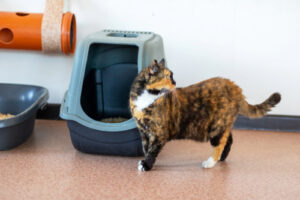You may have heard about a potentially new pathogen associated with Canine Infectious Respiratory Disease Complex (CIRDC) that has been reported in at least 14 states including veterinary laboratories in Oregon, Colorado, and New Hampshire. These reports have outlined respiratory cases presenting with coughing due to chronic tracheitis or pneumonia lasting weeks to months with minimal response to treatment and acute pneumonia that became rapidly progressive and fatal within a short 24 to 36-hour period.
The Oregon Department of Agriculture has identified an increase in documented cases, exceeding 200 since mid-August. This development has prompted proactive measures to encourage pet owners to seek veterinary guidance if their dogs exhibit any signs of illness. Collaborative efforts between state agencies and the US Department of Agriculture’s National Veterinary Services Laboratory are underway to identify the cause behind these cases.
Until we have more information on this respiratory disease, there are steps pet parents can take to better protect their canine friends.
- Be sure that vaccinations are up-to-date: Encourage booster vaccines associated with the prevention of traditional CIRDC including Bordetella, parainfluenza, and where available, canine influenza, especially prior to the holiday season boarding frenzy. According to the 2022 AAHA Canine Vaccination Guidelines, these vaccines should be administered annually.
- Limit exposure to other dogs: Reduce contact with other dogs outside their home, such as in dog parks, boarding facilities, and playgroups, to lower the risk of transmission. If holiday travel necessitates boarding, ensure that the dog is appropriately vaccinated for Bordetella, parainfluenza and, where available, canine influenza.
- Monitor for signs of respiratory disease: Stay vigilant for signs like coughing, difficulty breathing, sneezing, nasal or eye discharge, or lethargy. Contact your vet if your dog shows any signs of illness for early diagnosis and treatment. Keep sick dogs at home to prevent spreading to others.
- Reach out to our veterinary team for guidance: If you have specific concerns about your dog’s health or preventive measures, please call us at North Jersey Animal Hospital.
Currently, there does not appear to be a link between reported human respiratory illnesses and this canine respiratory illness. However, if you or a client start developing symptoms after contact with an unwell dog, consulting with a physician is advisable.





